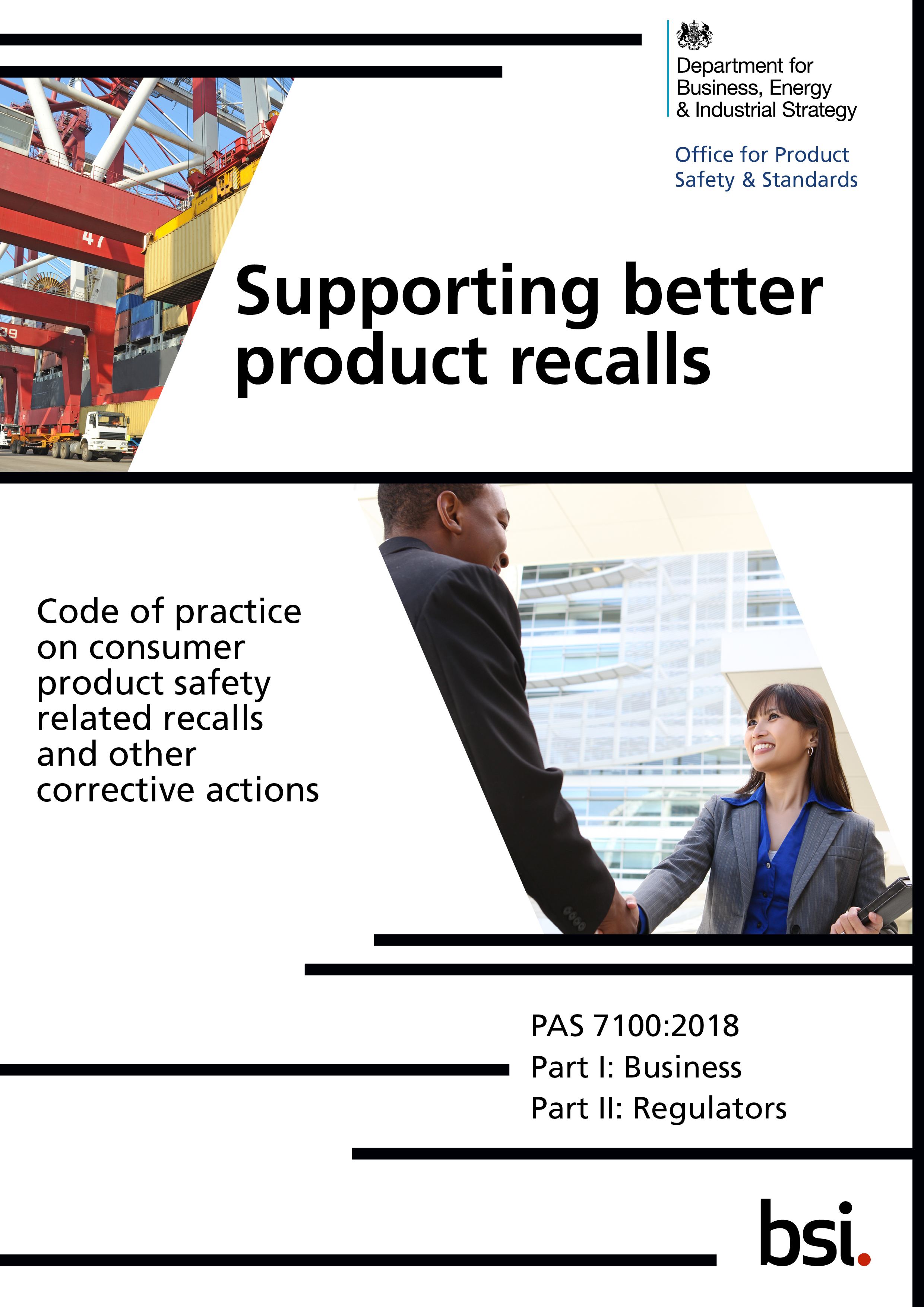New PAS created to help with effective product recall
Published date: |
|
Modified date: |
|

In today’s connected world, news of defective products can spread far and wide in the blink of an eye, so it makes sense to have a product recall and corrective action plan that can be activated equally quickly.
However, to date ISO and EU standards on product recall and corrective action have not been widely adopted in the UK. The new PAS 7100 offers a different emphasis: rather than seeking a solution when a defective product has reached the market, organizations are encouraged to plan for this eventuality to ensure preparedness.
The concern about product recall
Even with the very best quality control systems, any company could find themselves in the position of needing to take corrective action due to a defective product reaching the market. These incidents are extremely rare, but the increasing risk profile of reputational damage has led to an appetite for improvement; a recent Deloitte survey found that reputational damage is the top strategic risk for large companies.
In 2016, the Faulds Wood review identified key issues with the existing system, including a failure to use modern communication methods effectively and the need to establish a guide to best practice.
Following the Faulds Wood review, the Office for Product Safety and Standards was created. BSI has worked in partnership with the new regulator to develop PAS 7100, with assistance from leading retailers, consumer interest groups and industry bodies including Tesco, Samsung Electronics, British Retail Consortium, Royal Society for the Prevention of Accidents and the Association of Chief Trading Standards Officers.
An emphasis on forward planning
The PAS working group drew on the principles set out in existing ISO standards and EU generated documents, but also strongly promotes pre-planning and working in partnership with Market Surveillance Authorities (MSAs) to develop Product Safety Incident Plans (PSIP). The PAS relates to all non-food consumer products apart from those such as food, pharmaceuticals and automotive products where corrective action and recall processes are already in place.
A (PSIP). should include plans to collate information about how a plan will be distributed within a market to make the recall or corrective action process easier. By working with the local MSA (in the UK, Trading Standards Officers) the responsibilities and expectations of the business and the MSA will be defined, making for a smoother process when the need arises.
A PAS in two parts
PAS 7100 is structured in two parts. Part I is a code of practice for businesses with practical guidance on preparing plans for and implementing corrective action or product recall, including: the establishment of monitoring mechanisms; investigation of potential issues; mechanisms for dealing with product safety issues; and a system for ongoing review of corrective action programmes.
Part II is a guide for regulatory bodies, setting out how they can help to monitor incidents, support businesses in preparing (PSIPs), monitoring incidents and selecting and implementing appropriate corrective action; and responding proportionately where businesses fail to take appropriate and effective corrective action.
The two parts of the PAS are linked by shared information annexes. These contain helpful material such as checklists to assist with preparing and implementing (PSIPs).. For example, a company could use checklists to identify key communication channels to be used for corrective action, such as social media, notices in stores or news organizations.
It may be effective to partner with relevant third parties to recall some products. For instance, electronics manufacturers have previously worked with banks to notify customers who purchased particular products by credit card.
Destigmatizing product recall
No company wants to be associated with a failed product, which may explain the limited adoption of existing standards in this area. However, a (PSIP). is a valuable asset in managing the reputational impact of a defective product reaching the market, and shows a mature approach to market surveillance.
In the process of developing PAS 7100, it was interesting to observe how much common ground there was between organizations that were seemingly very different in industry, activity or scale. This recognition that contributors could all find a shared solution to a shared problem was one factor that made this specification relatively quick to develop, at around six months.
As with all PASs, 7100 will be reviewed within two years of its publication date to ensure it offers the most appropriate guidance in an accessible format. Following this, it is possible that the approach could be adopted internationally if it proves to be successful in the UK.
Click here to provide feedback

